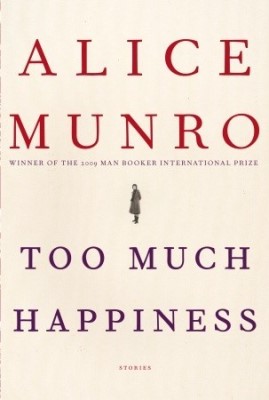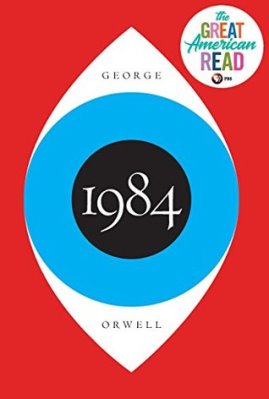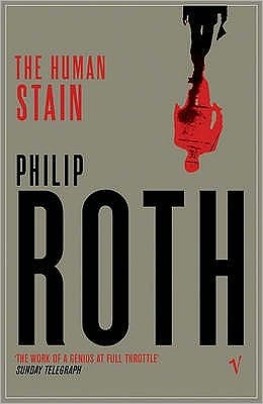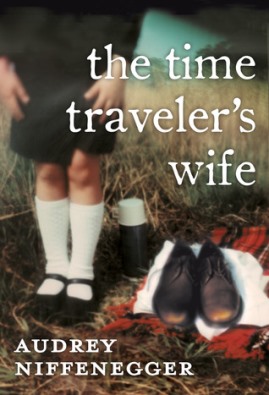Introduction of the ebook: Too Much Happiness: Stories
Đánh giá : 3.83 /5 (sao)
In these ten stories, Alice Munro once again renders complex, difficult events and emotions into stories that shed light on the unpredictable ways in which men and women accommodate and often transcend what happens in their lives.
Ten superb new stories by one of our most beloved and admired writers—the winner of the 2009 Man Booker International Prize.
In the first story a In these ten stories, Alice Munro once again renders complex, difficult events and emotions into stories that shed light on the unpredictable ways in which men and women accommodate and often transcend what happens in their lives.
Ten superb new stories by one of our most beloved and admired writers—the winner of the 2009 Man Booker International Prize.
In the first story a young wife and mother receives release from the unbearable pain of losing her three children from a most surprising source. In another, a young woman, in the aftermath of an unusual and humiliating seduction, reacts in a clever if less-than-admirable fashion. Other stories uncover the “deep-holes” in a marriage, the unsuspected cruelty of children, and how a boy’s disfigured face provides both the good things in his life and the bad. And in the long title story, we accompany Sophia Kovalevsky—a late-nineteenth-century Russian émigré and mathematician—on a winter journey that takes her from the Riviera, where she visits her lover, to Paris, Germany, and, Denmark, where she has a fateful meeting with a local doctor, and finally to Sweden, where she teaches at the only university in Europe willing to employ a female mathematician.
With clarity and ease, Alice Munro once again renders complex, difficult events and emotions into stories that shed light on the unpredictable ways in which men and women accommodate and often transcend what happens in their lives.
Dimensions —
Fiction —
Wenlock edge —
Deep-holes —
Free radicals —
Face —
Some women —
Child’s play —
Wood —
Too much happiness …more
Review ebook Too Much Happiness: Stories
“Something happened here. In your life there are a few places, or maybe only the one place, where something happened, and then there are all the other places.”
I pulled this quote from one of the stories in this very fine collection from the master of short stories, Alice Munro. Yet, I believe it sums up exceedingly well one of the themes running through every single story. There exist these significant moments in one’s life, no matter how remarkable they may or may not appear at the time, that s “Something happened here. In your life there are a few places, or maybe only the one place, where something happened, and then there are all the other places.”
I pulled this quote from one of the stories in this very fine collection from the master of short stories, Alice Munro. Yet, I believe it sums up exceedingly well one of the themes running through every single story. There exist these significant moments in one’s life, no matter how remarkable they may or may not appear at the time, that shape a person from that point forward. Do we know when this happens? When this moment occurs, do we proclaim ‘This is it! THE moment that will change me forever!’? Probably not. Alice Munro, however, is a master at drawing us to these moments in the lives of her characters – some of them more momentous than others. What impresses me most is how she manages to do this in so few words.
Don’t let the title of this collection fool you. Unless of course you can infer immediately what Munro means when she says “too much”. This is a bit of a darker assortment than I had expected to encounter. Perhaps this and the edgy southern collection I also read this month are somehow linked to the uncharacteristically cynical aura I radiated around the house this holiday season. Still, I appreciated the meatiness of both sets of stories. Sometimes horrific events occurred; at other times, we witnessed subtle happenings that had impact much later in lives. And there were times when the uglier, more shameful natures of our personalities were revealed. “The life of those times took much of its liveliness, its wit and folklore, as my mother may have known, from pure viciousness.”
Most of the stories were excellent; a couple of them were less engaging. The first, Dimensions, was the most poignant, in my opinion. Wenlock Edge left me squirming. After reading Free Radicals, I had a new respect for a resourceful, elderly widow. Child’s Play was perhaps the most disturbing. The misunderstandings of children as well as the cruelty they can easily inflict on one another felt all too real in this day and age. The last story, Too Much Happiness, is the one I was most drawn to as it told the story of a real-life historical figure, Sophia Kovalevsky, a Russian mathematician. Oddly enough, this piece actually felt a little out of place in the collection. I never really thought of Alice Munro as a writer of historical fiction, but that is exactly what this was. I thought it worked well, but it left me wanting a bit more – a full length story of Kovalevsky’s life would be even more satisfying. A brilliant woman struggling in a place (Russia and later Sweden) and time (late nineteenth century) to achieve the recognition and respect she very well deserved. “She was an utter novelty, a delightful freak… Men whose brains were blowing old notions apart were still in thrall to women whose heads were full of nothing but the necessity of tight corsets, calling cards, and conversations that filled your throat with a kind of perfumed fog.” I’ll be on the lookout for other works about this fascinating woman.
I’m a great fan of Munro. My first acquaintance with her was a collection titled The Moons of Jupiter. My favorite so far, however, is her one novel titled Lives of Girls and Women. I can’t recommend it highly enough – it is truly superb! I own a few more of her compilations and know that I can count on some captivating writing no matter what I choose next.
“It almost seemed as if there must be some random and of course unfair thrift in the emotional housekeeping of the world, if the great happiness – however temporary, however flimsy – of one person could come out of the great unhappiness of another.”
…more


 Đang tải dữ liệu
Đang tải dữ liệu










Chia sẻ ý kiến của bạn